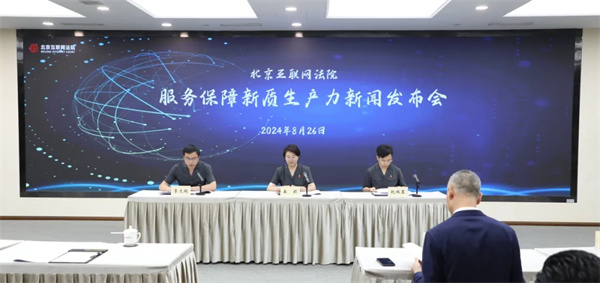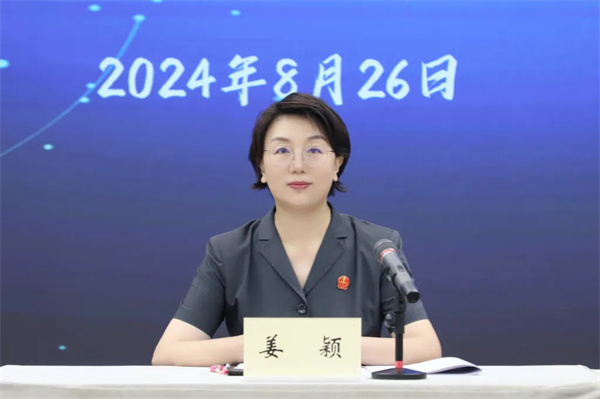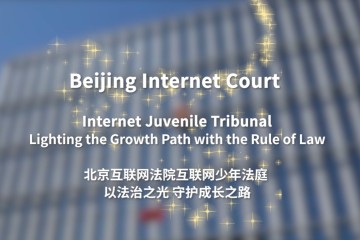BIC releases white paper and guiding cases on serving capital’s high-quality development
The Beijing Internet Court (BIC) released a white paper on serving the accelerated development of new quality productive forces at a press conference on Aug 26, summarizing the court's efforts in this area. President of the BIC Jiang Ying announced the release of the white paper.

As of June 30, 2024, the BIC has accepted a total of 219,695 cases, featuring emerging objects of rights, expanded industry scope, acceleration of business model innovations, and upgraded technological application, according to the white paper. New objects of rights such as data products, digital collectibles and artificial intelligence (AI) generated products are constantly emerging, and the applicable conditions for their rights protection urgently need to be clarified. Disputes in emerging industries such as information technology, AI, and digital products of culture and tourism are on the rise, and the level of judicial capacity has a significant impact on the upgrading of industrial structure. Litigation disputes caused by new business models such as online traffic promotion, live-streaming sales, and advanced video-on-demand services have brought challenges to judicial adjudication in terms of determination of legal entities and the allocation of liabilities. Cutting-edge digital technologies such as big data, blockchain, and AI have fully integrated and penetrated into traditional industries, constantly deconstructing and reshaping the market structure and industrial forms, resulting in increased difficulty in finding facts in case adjudication.

The white paper comprehensively summarizes the BIC's practices in serving the development of new quality productive forces in the capital. As introduced by Jiang, the BIC has concluded a number of typical cases in the fields of encouraging innovation and quality improvement in emerging industries, optimizing the business environment of the digital economy, and promoting the orderly development of the platform economy, which established a large number of judicial adjudication rules related to new quality productive forces. The court has partnered with related governmental departments and institutions including the Beijing Municipal Intellectual Property Office, Beijing Daxing Economic Development Zone, the China Academy of Information and Communications Technology, and the Beijing International Big Data Exchange to establish a coordinated governance mechanism to safeguard the high-quality development of the capital, according to Jiang.
It has reinforced the circuit trial mechanism and legal education work, built the country's first court-led judicial blockchain platform -- Tianping Blockchain -- and proactively participated in augmentation of the capital's legislative work.
The BIC has worked with higher education institutions to conduct prospective judicial research, and summarized its adjudication experience in a timely manner by releasing guiding cases and producing related publications. In the six years since its establishment, the BIC has organized 41 press conferences, released 235 typical cases concerning digital economy, published 187 front-page and full-page articles in mainstream media outlets, and issued 8,230 articles in various media platforms, continuously raising its profile.
At the press conference, the BIC also released ten guiding cases relevant to the development of new quality productive forces. They include right infringement cases concerning AI-generated products, NFT (non-fungible token) collectibles and the "Internet of Vehicles". The court also released its 17 measures in four aspects to support the capital's accelerated development of new quality productive forces.

 Judicial White Paper
Judicial White Paper
 Play
Play Play
Play Online Lawsuit Guide
Online Lawsuit Guide Beijing Internet Court Lawsuit Service WeChat Account
Beijing Internet Court Lawsuit Service WeChat Account  Beijing Internet Court WeChat Account
Beijing Internet Court WeChat Account